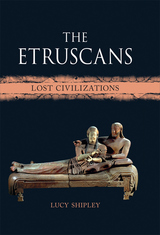5 start with F start with F
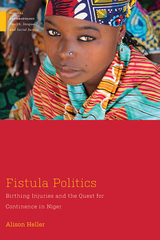
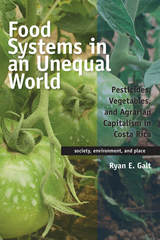
Food Systems in an Unequal World examines the agrochemical-dependent agriculture of Costa Rica and how its uneven regulation in export versus domestic markets affects Costa Rican vegetable farmers. Examining pesticide-dependent vegetable production within two food systems, the author shows that pesticide use is shaped by three main forces: agrarian capitalism, the governance of food systems throughout the commodity chain, and ecological dynamics driving local food production. Those processes produce unequal outcomes that disadvantage less powerful producers who have more limited choices than larger farmers, who usually have access to better growing environments and thereby can reduce pesticide use and production costs.
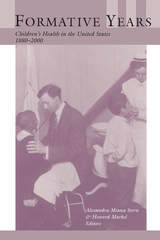
Much has changed in the lives of children, and in the health care provided to them, over the past century. Formative Years explores how children's lives have become increasingly medicalized, traces the emergence of the fields of pediatrics and child health, and offers fascinating case studies of important and timely issues.
With contributions from historians and physicians, this collection illuminates some of the most important transformations in children's health in the United States since the 1880s. Opening with a history of pediatrics as a medical specialty, the book addresses such topics as the formulation of normal growth curves, Better Babies contests at county fairs, the "discovery" of the sexual abuse of children, and the political radicalism of the founder of pediatrics, Dr. Abraham Jacobi.
One of the first long-term historical and analytical overviews of pediatrics and child health in the twentieth century, Formative Years will be a welcome addition to several fields, including the history of medicine and technology, the history of childhood, modern U.S. history, women's history, and American studies. It also has ramifications for policymakers concerned with child welfare and development and poses important questions about the direction of children's health in the twenty-first century.
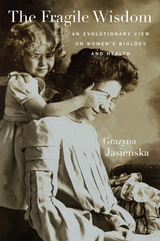
So many women who do everything right to stay healthy still wind up with breast cancer, heart disease, or osteoporosis. In The Fragile Wisdom, Grazyna Jasienska provides an evolutionary perspective on the puzzle of why disease prevention among women is so frustratingly difficult. Modern women, she shows, are the unlucky victims of their own bodies’ conflict of interest between reproductive fitness and life-long health.
The crux of the problem is that women’s physiology has evolved to facilitate reproduction, not to reduce disease risk. Any trait—no matter how detrimental to health in the post-reproductive period—is more likely to be preserved in the next generation if it increases the chance of giving birth to offspring who will themselves survive to reproductive age. To take just one example, genes that produce high levels of estrogen are a boon to fertility, even as they raise the risk of breast cancer in mothers and their daughters.
Jasienska argues that a mismatch between modern lifestyles and the Stone Age physiology that evolution has bequeathed to every woman exacerbates health problems. She looks at women’s mechanisms for coping with genetic inheritance and at the impact of environment on health. Warning against the false hope gene therapy inspires, Jasienska makes a compelling case that our only avenue to a healthy life is prevention programs informed by evolutionary understanding and custom-fitted to each woman’s developmental and reproductive history.
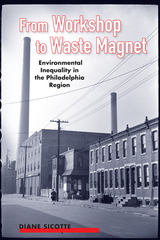
READERS
Browse our collection.
PUBLISHERS
See BiblioVault's publisher services.
STUDENT SERVICES
Files for college accessibility offices.
UChicago Accessibility Resources
home | accessibility | search | about | contact us
BiblioVault ® 2001 - 2024
The University of Chicago Press



